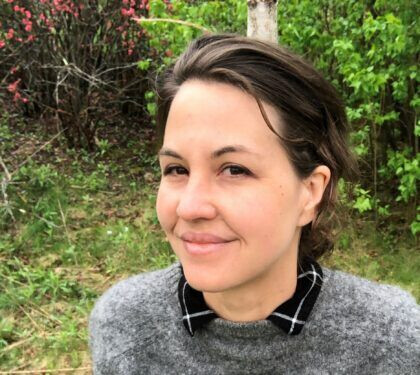Why Financial Support Is Important to Massachusetts Farming for Soil Health
“A healthy farm is representative of a healthy community, so we are trying to do whatever we can to farm sustainably and have good healthy soil that continues to replenish us each year”
-Leda Cook, Farmer, Riquezas Del Campo Farm
American Farmland Trust, in collaboration with the Massachusetts Coordinated Soil Health Program’s partners and Advisory Council, has made another round of Soil Health Minigrants awards this August. The purpose of these awards is to help farmers overcome small but significant hurdles to achieving their soil health goals by providing low-barrier funding using a simple application process. In our second round of funding, we were able to support 27 farms across the Commonwealth on a wide range of scales, from urban producers to larger scale row crop and produce farms.
Funds this round will be used to support inputs and tools for a broad range of healthy soil practices including: multispecies cover cropping; tools for no-spray, no-till cover crop termination (such as tarps and roller crimpers); on-farm composting; compost deliveries and improvements to compost spreading methods; and materials for mulching to keep the soil covered.
Other projects include a farmer who will use the funds to buy parts to build a tractor-mounted reduced-till cultivation tool, and a producer who will use the funds to purchase a cover crop mix to try growing together (interseeded) with a popcorn crop to support weed suppression and soil health.
According to Leda Cook, who farms at Riquezas Del Campo Farm in Hatfield MA, healthy soil practices “are a learning process, and this grant helps us with that process.” An immigrant-led cooperative farm, Riquezas Del Campo started in 2019 on a former hayfield that the cooperative leased from the city of Northampton. The farm started with nothing more than the land itself, the vision and hard work of its farmers, and support from the Pioneer Valley Workers Center in the form of organizing and fiscal sponsorship.
The Riquezas Del Campo team hard at work!AFT supported Riquezas Del Campo in 2020 with a New England Farmer Microgrant to support contract tillage from a neighboring farmer and a portion of the cost of a well to improve access to irrigation and wash water. However, the weed seed bank on the farm is significant from many years in hay, so tillage was quickly followed by heavy weed pressure. As the farm expands, the farmers hope to find a soil health management system that builds soil health, keeps weeds suppressed, prevents erosion, forestalls water and nutrient loss, and reduces their reliance on hiring tillage and bed preparation services.
A few of the field at Riquezas Del CampoLast year, the farmers planted a cover crop of daikon radish, oats, and peas distributed for free by the Massachusetts Coordinated Soil Health Program (an AFT-led project). The cover crop grew well, and the farmers even harvested some of the daikon before it winterkilled. This year in the same area, they planted winter squash and green beans in companion with other crops, “three sisters style,” explained Cook. “We didn’t irrigate that field at all this year, and yet even in the drought it has produced really well compared to other farms, which we attribute to soil health.”
The farm applied for support to purchase an even more diverse range of cover crop seeds—clover, peas, daikon, and oats—as well as weed mats, wood chips, and perennial plants in order to expand the no-till area on their farm. As a cooperative and a new farm, the margins on their work are extremely slim. “Grants right now are helping us to get to where we need to be as a sustainable farm,” explained Cook.
In surveys conducted by AFT and its partners through the MACSHP program, a wide majority of farmers report that grants are the most helpful form of financial assistance for soil health practices. It is profoundly challenging to make a living at farming, and rising costs across every farm tool and input has only increased the burden. While practices associated with soil health can increase farming profitability in the long term, the benefits can take many years to accrue. Equipment upgrades and modifications for lower-disturbance farming practices, as well as input costs like cover crop seed, mulch, and compost are all expensive and only getting pricier. Providing a wide array of financial supports– from small, easy-to-apply grants to larger, more complex grants and conservation contracts— help ensure that a broad diversity of farmers have access to assistance making investments in soil health that in turn accrue benefits to society beyond the farm gate—such as cleaner water, cleaner air, thriving biodiversity, and a more secure food supply.
Congratulations to all our summer round of Soil Health Support Minigrants Awardees:
Endever Agriculture Group LLC
Long Run Produce
To hear about opportunities like this award, as well as technical support and education events, please take our Soil Health Producer Survey.




